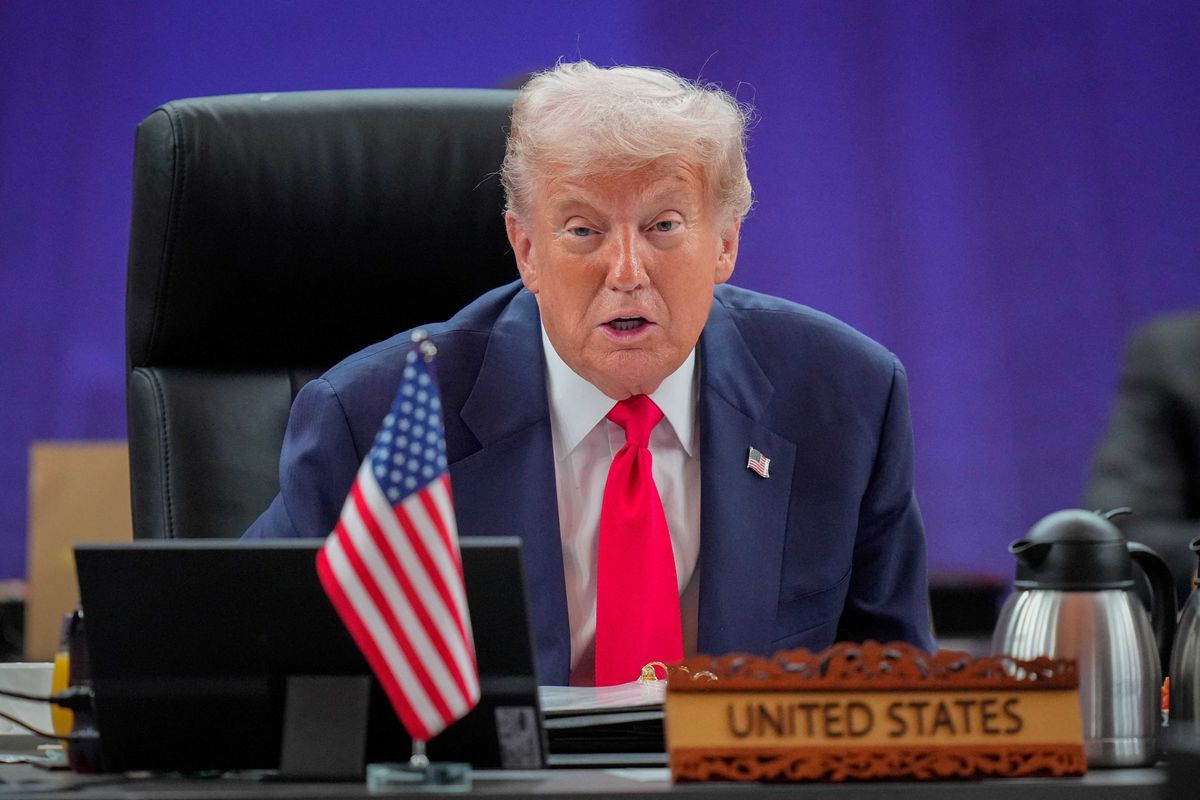
President Donald Trump is making a fundamental and easily avoidable mistake that's holding back the industrial boom he promised on the campaign trail, according to a report.
The delayed release of September's jobs report showed slightly better than expected job growth, with 119,000 jobs added to the economy, but the data also showed the manufacturing sector lost 6,000 jobs – which means there are now 94,000 fewer people working in American factories than last year ago and 58,000 fewer than when Trump rolled out his tariffs in April, reported Bloomberg.
"It’s certainly fair to ask, why the doomsday scenarios some economists predicted haven’t happened?" wrote correspondent Shawn Donnan. "The main answer being that Trump has rolled back many of his import duties and that other things have been going on such as that AI data center boom."
"It’s also fair to ask, why things haven’t been as good as Trump promised when he imposed tariffs with the goal of seeding an industrial rebirth?" he added. "The main answer being how he has rolled out his levies and what he has targeted."
Trump's steep tariffs on imported steel and aluminum seem to have boosted the primary metals sector, which added 2,300 jobs so far this year, but there's little evidence of the blue collar revival he has been promising since entering politics a decade ago, and the U.S. is actually losing blue collar jobs for the first time since the Covid-19 pandemic.
"In September there were 59,000 fewer people working in manufacturing, construction, mining, logging, transportation and warehousing than there were in September 2024," Donnan reported. "The difference in fortunes between service workers and those in goods-producing industries is stark, especially as senior officials in the Trump administration have talked about reorienting the economy away from Wall Street and services to one in which producing things drives growth."
Goods-producing industries accounted for only 10,000 of the 119,000 jobs added in September, almost entirely in the construction industry that has benefited from the AI data center boom, but his tariffs are actually holding back an industrial boom.
"What he hasn’t excluded from his tariffs is the very machinery and other inputs needed if you want to build a factory," Donnan reported. "In fact he’s threatened to impose more tariffs on industrial machines and robots. Which means that fitting out a new manufacturing plant in the U.S. is significantly more expensive than it was when Trump took office and may become pricier still."
"Trump’s targeting of what economists call intermediate goods amounts to a fundamental mistake if you are trying to encourage an industrial boom," he added.




